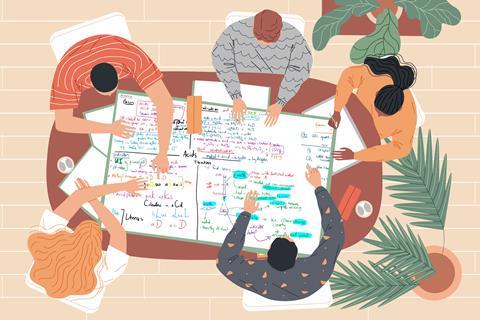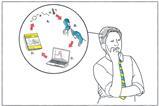Six effective strategies to help your students study and stay well
Revision is mostly seen as a magic tool to get students through summative assessments. This view elevates it to a high stakes’ activity, which can induce anxiety. Personally, I like to think of revision as review and consolidation. And to be effective in reviewing and consolidating students’ knowledge, revision strategies need to overcome some inherent problems:
- a one-size-fits-all approach
- a huge volume of knowledge, concepts and skills
- unrealistic time frames
- an assumption students know how to revise.
Revision is mostly seen as a magic tool to get students through summative assessments. This view elevates it to a high stakes’ activity, which can induce anxiety. Personally, I like to think of revision as review and consolidation. And to be effective in reviewing and consolidating students’ knowledge, revision strategies need to overcome some inherent problems: a one-size-fits-all approach; the huge volume of knowledge, concepts and skills; unrealistic time frames; and an assumption students know how to revise
And all these problems can mean students simply don’t come to your revision sessions. Add in the high expectations we place on revision and it can impact on the mental well-being of students (and teachers). Here are my top tips to avoid this and make revision sessions successful.

1. Plan reviews
I embed Pause and rewind routines into my scheme of work. For every five lessons, one lesson is a pause and rewind lesson. We stop learning new topics and look back at what we’ve already covered. Students know they can request topics to review, and they often do so in advance or on the day. In the lesson, I work with the class to create a knowledge organiser for the topic. By doing so, I am modelling how they can create their own revision resources and how to write succinctly (everything must fit on one page).
I stick to four sections: basics (knowledge, vocabulary); specific concepts (summarising the key concepts); practical/maths skills; exams (typical questions and pitfalls). I try to assign grades to each section, eg knowledge will be E–C or 3–5 etc, which students find helpful.
2. Slow down
Pace is key here. My revision sessions are slower than normal teaching. This allows students to take in the information and leaves space for them to ask questions.
After-school revision sessions are just 30–45 minutes. There is no obligation to stay for the whole session. I let students know the topics being covered in advance so they can choose which sessions to attend.
With small groups I like to sit around the table and use A3 paper with felt tips to go through topics or work through an exam question. Showing them how to storyboard questions like back titration and synthesis is useful.
3. Feed them
For after-school sessions I provide biscuits and chocolates. This makes the sessions less formal and helps students concentrate after their school day.
4. Model how to revise
You can do this with a whole class, in small groups or one-to-one. I have created, printed and laminated suggested approaches on how to structure an hour of revision. To make sure the students know how to use these, I model it in the revision session and stick to the suggested timings.
I tell my students not to worry about what they don’t know, as long as what they know, they know very well
5. Help students plan
I share suggested plans with students, reinforcing the importance of scheduling and timing. Make sure your students plan their study in slots of no more than an hour, with 15–20 minute breaks between sessions.
Remind students to target a specific area of a topic, and not just the subject or the whole unit, with each slot. For example, the reaction of aldehydes and ketones, not simply, chemistry or topic 17. Do not expect students to know how to do this. It helps to sit with them to make the plans for the first week.
Interleaving is crucial. My advice to students is to split the time between two subjects and repeat one subject on consecutive days. For a student studying three A-level subjects that means subjects A and B on day one, subjects B and C on day two and C and A on day three. So by the third day, they have done two sessions per subject.
6. Minimise anxiety
One of the key things that induces anxiety is timing. To combat that, students need to practise completing work within a set time. A simple idea I have used successfully is to set work by time. For example, I instruct students to spend 45 minutes on a topic. This stops them focusing on getting to the end, instead they’re concentrating on doing their best in the time given.
I tell my students not to worry about what they don’t know, as long as what they know, they know very well. One of my other favourite phrases is: ‘you do not need 100% to get a 9 or A*.’ The best way we can help students with revision is to encourage them to find a method that suits them and stick to it.
Samia El-Ali














4 readers' comments